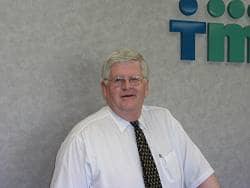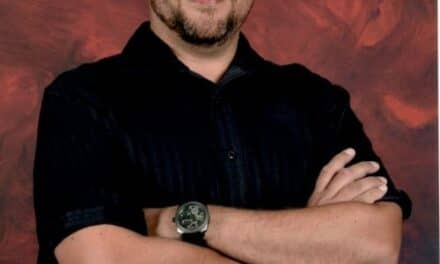 It’s the fashion nowadays to describe what we biomeds and clinical engineers do as “healthcare technology management.” I know that my opinion may not be very popular, but I think the name does an injustice to us and to what we do best. Let me explain.
It’s the fashion nowadays to describe what we biomeds and clinical engineers do as “healthcare technology management.” I know that my opinion may not be very popular, but I think the name does an injustice to us and to what we do best. Let me explain.
I will admit to being old and somewhat stubborn when it comes to our profession. When I entered the healthcare engineering field in 1962 (not 1862, as some may think), our function was to make items that were needed to treat sick patients, but always keeping in mind the admonition to first do no harm to those patients. Over the years, my fellow healthcare engineers developed some great technology that has saved countless lives and made the quality of life for many people so much better. We would go to meetings and freely talk about what we were working on and seek input from others. (Remember, this was before the Internet, fax, cell phones, and a multitude of publications on every specialty in medicine.)
A Series of Setbacks
Many of those designs were passed on to manufacturers. They marketed those devices, and healthcare jumped forward. Then there was a series of setbacks. One of the big ones was an article published in 1971 in that great technical journal, Ladies Home Journal, by Ralph Nader, called “Ralph Nader’s Greatest Exposé.” In it, he claimed that thousands of people were killed in hospitals every year by micro shock. Now, if anyone has any proof that a person was killed by micro shock from a medical device, please publish that information. Forty years with no proof is long enough to hold onto an error in data collection.
This development was a step in the wrong direction, as hospital lawyers—and I intend no comment on their value to healthcare—got involved and pushed hospital administrations to have every device tested on a regular schedule. This reaction led to another jump in health technology management positions—in my opinion, a waste of time and money. Then there was that group out of an Eastern state that was issuing ratings of devices and suggesting potential problems, and that was followed in 1976 by Public Law 94-295, better known as the Medical Device Amendments of 1976.
In its aftermath, where it used to take days to get a device to a patient, it now took months and, in many cases, years. The law added huge costs to the system, and had a significant repercussion on our profession: Healthcare technology management groups now had more perceived need to manage technology, rather than focusing on what was best for the patients and keeping costs down.
Are the Managers Succeeding?
One of the notable features of healthcare technology management is benchmarking. Well, I have yet to see a single publication or presentation showing that benchmarking has improved patient care, cut costs, or done anything else of true value. If the “managers” doing this work found value, you think that it would have been shared. A lot of the blame for not getting good information out to us all lies with the big institutions and service organizations that supposedly gather data but never share it outside of their groups.
It has been close to 25 years since some of the early “technology managers” started pushing the concept that all medical devices would be interconnected. The result of this development would be that data would flow easily and accurately between all devices, medical records, and, of course, the billing databases, reducing costs and improving patient care. They are closer than they once were, but we still have to fill out all sorts of paperwork every time we go to a doctor or get a flu shot. Outstanding HTM on this one! The fact that we still have so far to go after 25 years makes you wonder what these “managers” are doing.
Another pet peeve of mine involves the process for dealing with the Year 2000 (Y2K) problem. We poor, underappreciated biomeds and engineers worked long and hard making sure that the equipment we were responsible for would work, and that patient care would be continuous. We did all of that at a cost of about 10% of what the IT people spent. Plus, they have replaced the equipment they purchased back then at least twice in the last 15 years, while we still keep our technology working and safe for patients. Again, the managers were wrong and we were right. But who gets all the credit? Not us.
Keep Calm and Carry On
But we do have the comfort of knowing that our work helps so many people get better and we are always cost driven. If the OEM is trying to overcharge us for a part, we go to all the second sources that we know of to get that part and install it so patient care can continue.
And now we have had our profession renamed “healthcare technology management” by those who probably could not do any repairs or assist a nurse or help a physician treat a patient. Regardless, we will continue our work, knowing that what we do is very important and that anyone can be a manager or “leader.” Don’t believe that? Just look at Congress!
In closing, my wife and I are getting close to the age when we will need an increasing level of healthcare, which includes technology. So to all you technical people, thank you for your past services. We hope you are still around when we need you in the future (and that you learn how to use those 3D printers, since many of the new devices we will need will be generated on them). To the managers out there, I would just say this: Please stay out of the way of the technical people so they can do their jobs to support and improve healthcare.
David Harrington, PhD, is a healthcare consultant based in Medway, Mass, and a member of 24×7’s editorial advisory board.





I agree that the title is wrong, not descriptive.
Thank you David. I have been in the Biomedical Service profession for over 30 years. I have never heard of or been made aware of a patient being injured by leakage current but millions of dollars in labor are still mandated by standards and “managers”. I named our department HTS, Healthcare Technology Services Dept. many years ago, as service is what we provided. Unfortunately, the field seems to be moving into a management mentality, rather than service.
Well said! We in the biomed profession spend way too much time performing electrical safety tests, and not enough time assisting healthcare providers in selecting and correctly using medical equipment.
Dave, I’ve been kvetching about this name change since the minute I heard about it, and for similar reasons. I gave AAMI a piece of my mind about it, and then let it drop. Having just entered my seventh decade, I figure it’s for those younger than me to decide what their future is.
As I’ve oft written and said in the past, I’m an engineer who over the years has picked up management duties. My training is as an engineer, and I continue to approach problems with my engineering perspective. From day one in my career, I’ve always assumed that my employers pay me to do exactly that. I have no idea – none – what it would mean to approach a problem from the perspective of healthcare technology management. But if our younger practitioners do and want to assert that as their professinal identity, hopefully they do know how what they’re asserting and can elaborate on its particular economic and social contributions.
That is not to say I agree with you in totality. Technology and technological systems are far more complex than when we entered the field, and I believe that strict focus on the technical sans consideration of larger sociotechnical aspects of the application of engineering to healthcare is no better an approach than the other way around.
As for attempting to get engineering done in support of connecting medical devices, check this out:
http://www.mdpnp.org/
It’s not the technology managers who have been doing this work. They’ve been waiting on others to do it for them. Among my hopes as I fade away is that clinical engineering steps up and starts doing engineering again. The opportunity is there. I’m not holding my breath waiting on the usual suspects for this, though. Hopefully our younger practitioners won’t, either.
I was one of those who helped craft the name HTM. There were 30 of us. 25 were working biomeds and biomed managers. There were also several nurses, administrators and others to create a well-rounded group. We considered (ad nauseum) many, many names. All had significant problems. While HTM may not be perfect, it was deemed to be significantly better than any of the alternatives. I still call us “Biomeds”, but I believe the name of the profession is best described by “Healthcare Technology Management”.
Amen, Patrick! It is the best all encompassing name for the field that most of us can think of. Management isn’t just about bean counting. Any fresh out of school tech who is managing his or her first PM workload is managing. Healthcare technology management is about being a good steward of technology, managing workload, managing projects, managing technicians and budgets, managing customers, managing IT deployments and integration, managing technology installations in facility projects. I think that healthcare technology management sums up the wide variety of all that biomedical equipment support specialists and clinical engineers do. It’s not just about break/fix anymore. We need a name that speaks to all that we do – both front line techs and department managers alike. HTM is that name.
Very well stated!!
I’m on to the 3D printers, you bet.
Well said! I was commenting on this name change today with a coworker. It’s a name that tries to justify all the management nonsense that prevents us from providing the services we do best.
I also have witnessed the progression of Clinical Engineering Management over the last several years. I’ve had the distinct displeasure of working with “managers” in my career who don’t know or fully understand the complexity and science of Biomedical Service in the Healthcare Environment. Through the years, what remains as constant is customer service and satisfaction regardless of expense.
I think everyone has gotten off track here. While I do not think HTM is the best name ( I don’t have a better one though) It is not about managers. It is about the Biomed techs that are managing the equipment in the healthcare environment. By managing “I” mean making sure it is used in a safe manner, staff is trained, the equipment is working properly and calibrated or verified. We also help manage the environment that he equipment is used to to make sure all is safe for the patient. My tag line is “Supporting Quality Patient Care”.
There are lots of nuggets to agree with among the replies, particularly Steve Kelley. Here are my thoughts about Healthcare Technology Management, for what it’s worth.
I feel the title is a pretty accurate description of the field we are in- that’s what we do, manage the technology. The problem I see is more about what that makes our job titles. No one refers to me as a Technology Manager- I’m still the Biomed. Many organizations now call the departments Clinical Technology, but we are not Clinical Technologists, but that’s similar to most of us not being Engineers, when we were all changing to Clinical Engineering.
It’s a descriptive title for the field, but still fuzzy in application. Cheers to all of us who are working to make things better, regardless of the title we choose.
Amen Dr. Harrington. I’m a oldie and we will stick with Biomed.
I attended the Army medical equipment repair course (USAMEOS) in 1995. First, I was a medical equipment repairman (as we called them in the Army)for eight years and then a biomedical equipment support specialist (as we call them in the VA) for 9 more years. I was never an engineer. Although the Army had clinical engineering departments and the VA has biomedical engineering departments, I was neither a clinical engineer or a biomedical engineer. I was a technician first, but above and beyond that, I was a manager. First I managed my own workload, then I managed a small road team and a couple dozen clinics in Germany. Later I managed a shop as foreman, then supervisor, and still later a large department – all as a technician. I was not an engineer, but I was managing healthcare technology. I believe that healthcare technology management is the proper moniker for this reason. There is less and less engineering involved in the field today. CMS doesn’t even want to allow local managers to have the latitude to modify PM procedures let alone equipment designs. Healthcare technology systems are increasingly complex, and success will be more about how well biomedical professionals manage systems, problems, projects, and costs than anything else. I think it’s time to stop treating HTM like a bad word. Let’s embrace it, for it truly suggests the complex nature of all that we do.